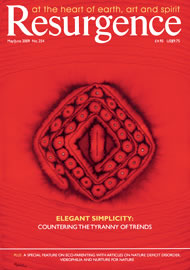ROBERT SHAPIRO IS a former advisor to Bill Clinton and has a wealth of experience in global politics on which to draw in setting out this detailed account of the forces shaping our world in the period to 2020. This is now not so far away, and as increasingly pressing global challenges creep up the agenda, it could be a critical period in history.
Shapiro constructs his narrative around several megaforces that he believes are the key questions to watch in the coming years. The first one he deals with is what he portrays as the developed countries’ demographic time-bomb. This is derived from ageing populations and the effect this will have on their economies and political systems, as more and more older citizens become dependent on a relatively smaller pool of tax-paying workers. The second is the continuing primacy of globalisation and how countries will be subject to ever more profound competitive forces. This leads him to his third major conclusion on how there will be two superpowers in 2020 – the USA and China – which will continue to accumulate power and wealth while Europe and Japan slide towards economic decline. There is a final chapter that includes a few wild cards, for example on terrorism and technology.
While reading Futurecast I could see how views that Shapiro would have heard and championed as policy advisor in the White House are still very much with him. This can be seen in his support for the particular approach the US has demonstrated towards global ‘economic liberalisation’, expressing barely concealed disdain for those countries in Europe that have championed more progressive and socially responsible policies that have in part relied on more state intervention. The “bare knuckled competition that globalisation requires” is presented as a non-negotiable given, while those on the receiving end of the consequences are dismissed as ill-informed and wishing to “legalise modern-day forms of piracy and counterfeiting” (and in this respect Shapiro is referring to the governments of Brazil and India).
But what I found more striking than the doctrinaire approach to globalisation and the inevitability of it (and other 21st-century ‘realities’) was how the biggest issue of our day was not there at all. Even though this book was published last year (and therefore well into the period when it was obvious that a major financial crisis was possible after the collapse of Bear Sterns in September 2007), it has no mention of the potential impacts in 2020 of an economic meltdown starting in 2008. There are very few references to an impending crisis, for example, in relation to the American consumption “that keeps much of the rest of the world growing”, and Shapiro also observes that “America now borrows hundreds of billions of dollars every year from foreign savers, perhaps straining global capital and currency markets to nearly a breaking point,” but these give no sense of systemic concern.
The fact that this crisis was not one of Shapiro’s megatrends revealed to me how even the best-connected and most informed strategists can miss even the biggest issues. Nevertheless, Futurecast does provide an interesting insight into the mindset of some of those close to power and perhaps helps to reveal the source of some of the intellectual arrogance that lies behind how the US presents itself in international negotiations, and why a lot of countries and social movements from around the world feel alienated by what it advocates. I hope Barack Obama has a new team of advisors in place before embarking on his first rounds of major new policy initiatives.
Tony Juniper is an independent sustainability adviser, writer and campaigner. He is a former director of Friends of the Earth.







